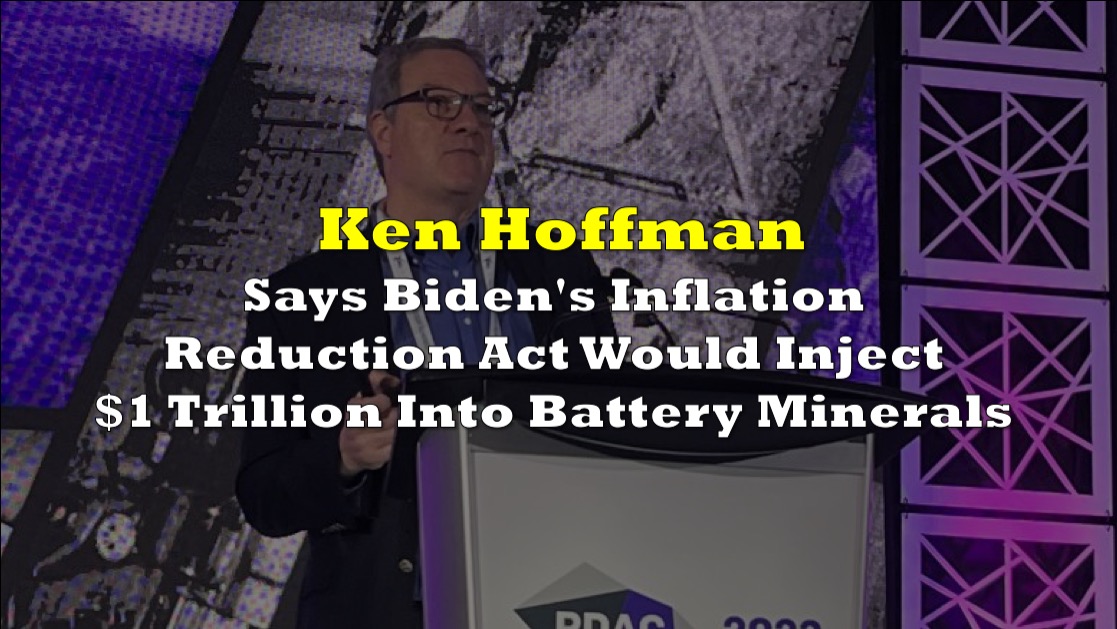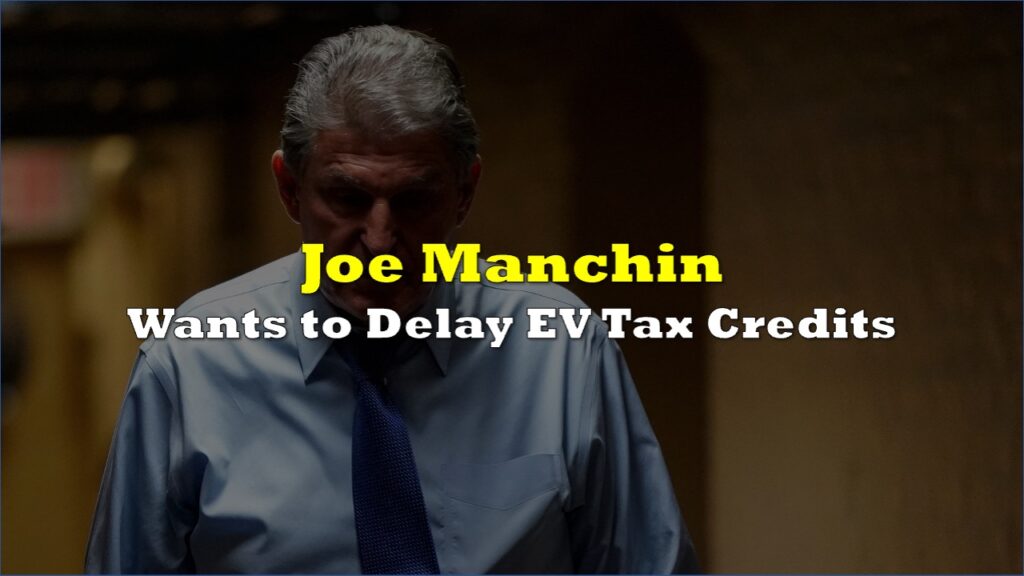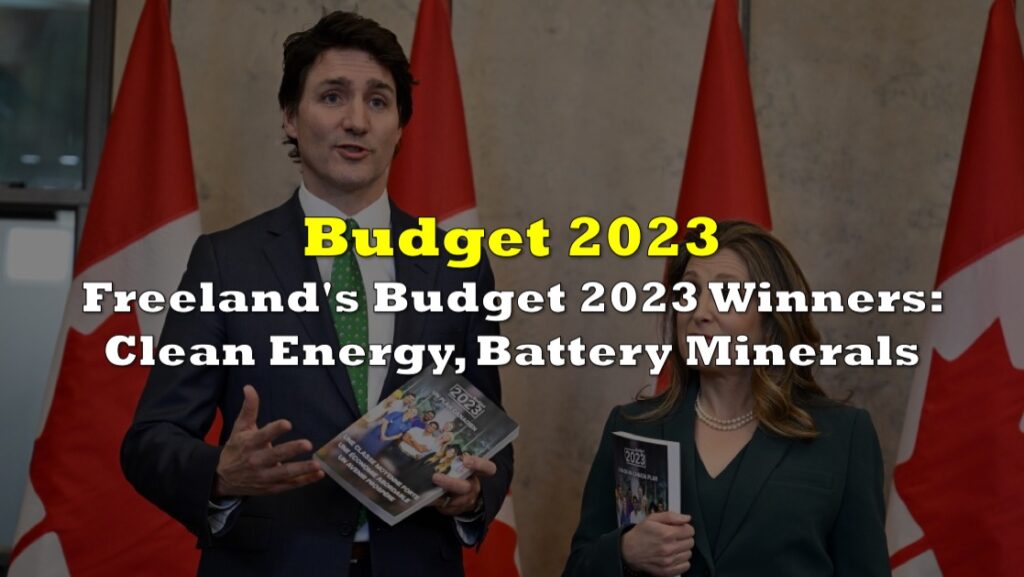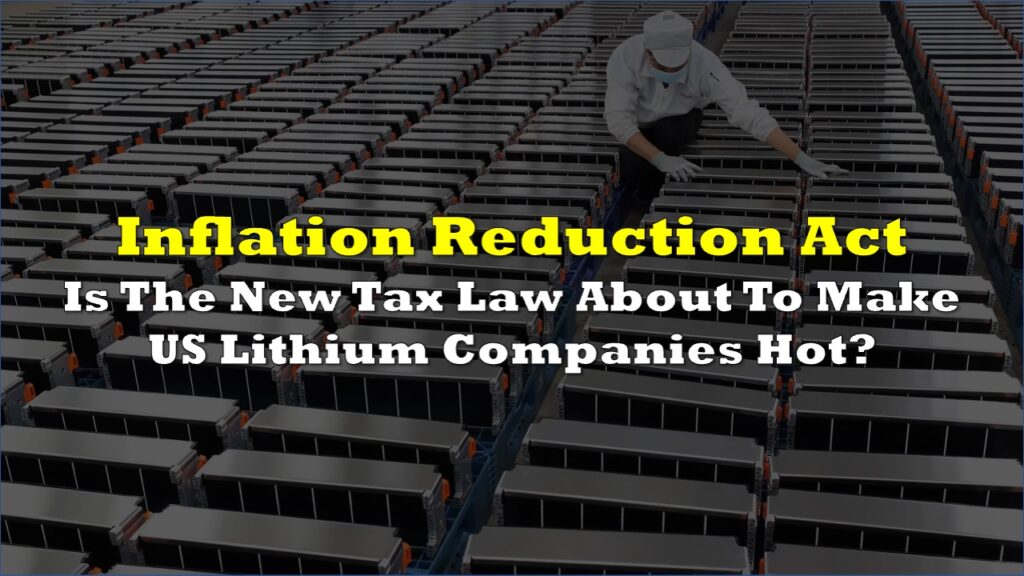According to Ken Hoffman, head of battery raw materials at consulting company McKinsey & Co., the United States Inflation Reduction Act (IRA) could work as a potent tonic for the mining industry, particularly in Canada, setting it on pace for a dramatic expansion in the next decade.
Speaking as the first keynote speaker at this year’s Prospectors and Developers Association Conference in Toronto, Hoffman said the law “changed everything” for the battery minerals industry.
“It’s going to change metal flows; it’s going to change the pricing; it’s going to introduce premiums,” he claimed.
The measure, which President Joe Biden signed into law in August 2022, includes approximately $500 billion in lucrative tax cuts to begin the shift to greener energy, including incentives for batteries manufactured in countries with free trade agreements with the United States. Hoffman estimated that the subsidies would pump $1 trillion into the battery materials supply chain.
“The energy transition will be everything, absolutely everything… In the U.S. they don’t want to mine, but they want to buy from sources deemed localized, deemed acceptable to U.S. regulators. Canada, we love you. This is where it will come from,” Hoffman said.
According to McKinsey, the value of Canada’s mined critical mineral supply will reach $10.8 billion in seven years, surpassing both China’s $9.2 billion and the United States’ $7.8 billion, but far short of Indonesia’s $25.2 billion, which will top the worldwide ranking.
Hoffman criticized the term “critical mineral” as a marketing ploy. “What is critical depends on the regulator,” the mining pundit explained.
Copper, for example, is currently not on the federal government of the United States’ list of critical minerals, which are regarded as essential for the economy and security. Nonetheless, he claims that demand would skyrocket as a result of the energy transition, which, together with a growing global population and middle-class, will sustain increased mining.
He believes that electric vehicles will eventually replace internal combustion engine vehicles, using current Chinese technology as a pointer for what Western countries should expect to see soon.
“In China today, you can buy an (electric) car with a 1,000-kilometre range that can recharge in eight minutes,” he said. “Why would you want a petrol car? One-thousand-kilometre range, eight-minute recharge, no service cost. It’s here and it’s only getting better.”
Yet, if the energy revolution takes global mining away from coal, it will not be a bonanza for any metal in particular, according to Hoffman. Metal prices that are too high tend to drive substitutes.
“You don’t want prices to go higher and higher and higher,” he said. “Why is cobalt dead? Cobalt went to $100,000 per metric ton. It killed itself.”
Already, several dozen battery chemistries for electric vehicles are known, but the two primary chemistries are lithium-iron phosphate and lithium-ion batteries with nickel manganese and copper.
Nonetheless, by the end of the decade, Hoffman anticipated that a lithium-sulfur battery will be commercially accessible and “cheap, really cheap — we’re talking half the cost if they work.”
The supply and demand for materials are also affected by the mineral: lithium, for example, is abundant and takes only two to two-and-a-half years on average from exploration to first production. According to him, this trend could lead to more fluctuating lithium pricing.
While it may do wonders for the battery minerals, the IRA is criticized by some observers for not being a strong measure to address the problem written in its title: reducing inflation.
“You cannot borrow your way out of a debt problem,” said David Morgan of The Morgan Report in a The Deep Dive interview. “Adding debt makes it worse, not better. And printing money does not print wealth. So we are again in a bind that we can’t get out of.”
The annual inflation rate in the US slowed only slightly to 6.4% in January of 2023 from 6.5% in December, less than market forecasts of 6.2%. Still, it is the lowest reading since October of 2021.
Information for this briefing was found via The Financial Post and The Northern Miner. The author has no securities or affiliations related to this organization. Not a recommendation to buy or sell. Always do additional research and consult a professional before purchasing a security. The author holds no licenses.









